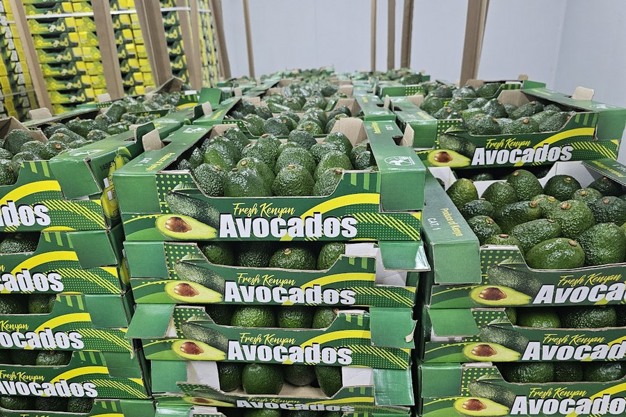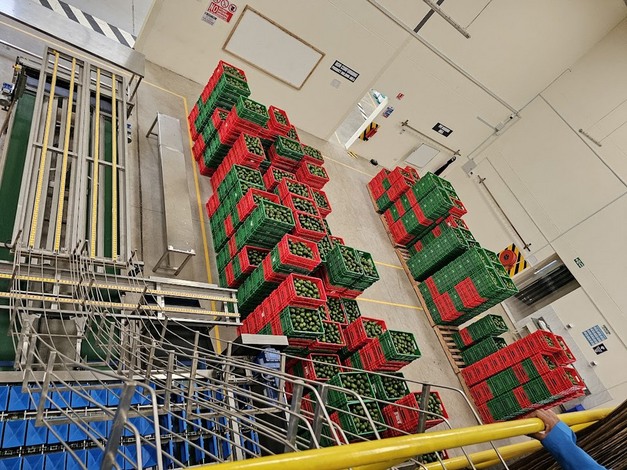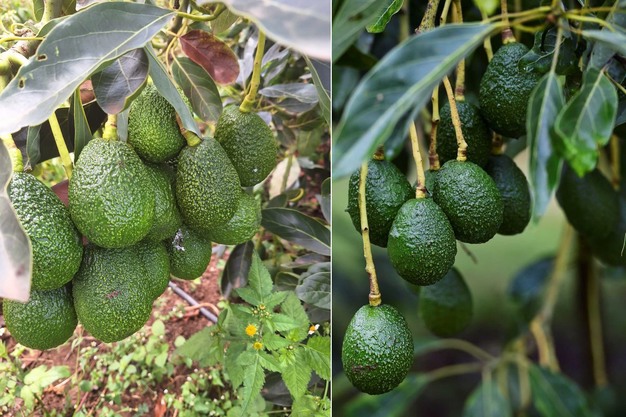Despite the challenges with the Red Sea, the Kenyan avocado season has kicked off with a great start, says Paul Kyalo, Managing Director of Kenyan tropical fruit exporter Konza Tropicals Limited: "We've had an excellent start of the avocado season on March 1st. In the first two weeks of the season, we saw heavy loadings out of Kenya with most volume concentrated on the big calibres 14s to 22s. Europe takes over 70% of the market share, followed by the Middle East, Asia, where China is also included, Turkey and Russia, among other destinations in Eastern Europe. Fast forward to the third week of season opening in Kenya, we were shocked to receive news from key shipping lines on the shortage of CA reefer containers. Some exporters were caught unaware with significant volumes kept in cold storage for several days, but we see this problem getting solved and shipping is starting to resume normally from early April."

Although the season seems positive, the logistical challenges are very real, as transit times have increased significantly to European destinations, Kyalo explains. "The Red Sea crisis has paused significant challenges to the Kenyan avocado season. First, marshalling of empty CA reefers to the Port of Mombasa was delayed, which resulted in the shortages we have experienced in the last two weeks. Secondly, transit times to key destinations have increased. For instance, it used to take 20 to 22 days to Rotterdam from Mombasa, which now takes 37 or even over 40 days in some departures. Getting to Turkey used to take 18 to 20 days, which now takes over 45 days in transit. However, the Middle Eastern and Asian markets remain strong and transits here have not changed."

According to Kyalo, the increased transit times also have an effect on the cash flows for exporters: "We see most volumes into Europe making entry through Algeciras, Spain as the destination port, as we have a stable transit of 30 days to this destination, sometimes even lower. Increased transit times result in cash flow constrains for exporters, since farmers are paid immediately on collection at the farms. However, due to the longer transit time, it will take longer to receive full and final payments from buyers to fulfil consistent weekly shipping programs. The good news is that despite the long transits that are experienced, Kenyan avocado quality and arrivals are very good, firm and everyone is happy with the progress. We can reach all our markets and they remain open for Kenyan avocado, despite the crisis on the Red Sea."
Kyalo states that exporters and growers would rather keep the fruits on the trees a while longer, to capitalize on a more profitable second half of the year. "Avocado production in Kenya remains on a trajectory growth. Both growers and exporters see this situation as a medium-term problem, that will eventually end. Growers prefer to have fruit longer in the trees to capitalize in the second half of the year, with the July to November harvests, as these avocados have excellent quality and dry matter, big calibres and good prices when other origins decrease on arrivals, especially into Europe."

Right now, a solution to any of the avocadoes that won't make it for export, will be used for avocado oil, which is also a major market for the exporters from Kenya: "Significant volumes of avocado might not reach the traditional international markets, and that means all these avocados will be processed into avocado oil. Kenya is now the world's second largest processor and exporter of avocado oils, right after Mexico. Kenya will also take advantage of quicker access of the Middle East and Asian markets, to concentrate some volumes of fresh avocados. This will grow these markets to absorb more avocado volumes, compared to the previous years. The investment and growth optimism on production, processing and exports of avocados and oils in Kenya will remain strong and focused for the future," Kyalo concludes.
For more information:
Paul Kyalo
Konza Tropicals Limited
Mobile / WhatsApp : +254 711 214 869
Email: paulk@konzatropicals.com
https://konzatropicals.com
